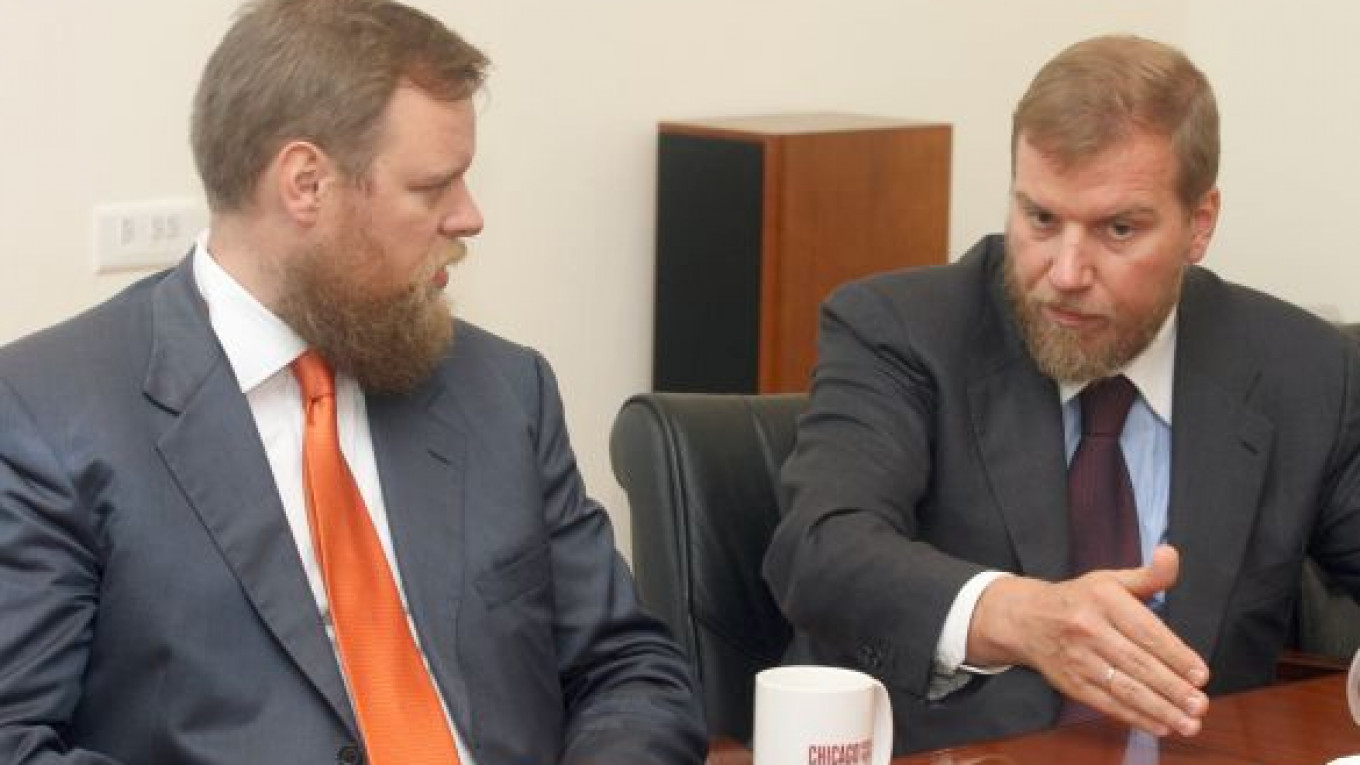Weak investor demand has pushed Promsvyazbank to abandon an initial public offering in London and Moscow despite the success of state-owned Sberbank’s listing just weeks earlier.
Russia’s second-biggest privately controlled bank was looking to raise between $345 million and $414 million by selling a 20 percent stake.
The announcement late Monday evening marks the second time in four years that Promsvyazbank has backed away from an IPO. Plans in 2008 were postponed as the financial crisis took hold.
This time it appeared to be Promsvyazbank’s own inadequacies that had put investors off.
“On most operating numbers the bank isn’t very strong, and it’s nowhere near Sberbank in any way,” said Bruce Bower, a partner at Verno Capital with $150 million under management in Russia.
The fund invested in Sberbank’s offering but was not convinced by Promsvyazbank, added Bower.
“The road show presentation didn’t address all of investors’ doubts,” he said.
Promsvyazbank, which is controlled by the heavily bearded billionaire brothers Alexei and Dmitry Ananyev and includes the European Bank for Reconstruction and Redevelopment as a shareholder, said the bids were miserly.
“Pricing indications did not achieve what Promsvyazbank or its shareholders considers to be fair value for the growth prospects it offers,” the bank said in a statement posted on the London Stock Exchange’s website.
Promsvyazbank announced on Oct. 3 it was hoping to sell global depositary receipts, or GDRs, from $10 to $12. Each GDR was to represent 7,500 ordinary shares.
Investors may also have been spooked by the low pricing that the bank put on itself, said Denis Poryvai, financial analyst at Raiffeisenbank. It was about 0.7 percent to 0.9 percent of book value.
“There is no negative dynamic on the market,” added Poryvai. “It’s the bank’s specifics that caused the lack of demand.”
J.P. Morgan, HSBC and Renaissance Capital were the bookrunners and the global coordinators for the deal.
But Promsvyazbank’s failure will stoke fears that the appetite for Russian companies — which was voracious during Sberbank’s $5.2 billion secondary public offering last month — is fading.
The MICEX Index has fallen 6 percent over the last month, paring a strong summer and gains supported by the U.S. Federal Reserve’s September decision to launch another round of quantitative easing.
While private Russian health care provider MD Medical Group raised $311 million on Friday in a London placement that relied on anchor investors, the size of the IPO was small compared to Sberbank.
After Promsvyazbank’s retreat, all eyes are now on giant mobile operator MegaFon, which is aiming for a London-Moscow listing of up to $3 billion before the end of the year.
Having failed to secure public funding and in need of capital, Promsvyazbank, which tripled its first half year-on-year profits to $118 this year, looks likely to turn to private sources.
“Promsvyazbank has received interest from third parties … that it would like to take time to consider,” the company said.
Some analysts suggested that further growth and strategic successes could mean the Ananyev brothers will eventually be given another chance to take Promsvyazbank public.
“This IPO perhaps comes a little bit too early in terms of persuading investors to buy into a turnaround story at an early stage of that process,” Sberbank CIB analysts said in a note to investors Tuesday.
The bank will have to wait at least a year for another chance to go to the market, said Raiffeissen’s Poryvai.
A spokesperson for Promsvyazbank declined to comment on future plans or discuss the reasons behind the decision to pull the IPO.
“We’re disappointed that we haven’t completed the transaction at this time,” said Promsvyazbank president Artyom Konstandyan in an e-mailed statement.
“We will review this decision when market conditions improve.”
Related articles:
A Message from The Moscow Times:
Dear readers,
We are facing unprecedented challenges. Russia's Prosecutor General's Office has designated The Moscow Times as an "undesirable" organization, criminalizing our work and putting our staff at risk of prosecution. This follows our earlier unjust labeling as a "foreign agent."
These actions are direct attempts to silence independent journalism in Russia. The authorities claim our work "discredits the decisions of the Russian leadership." We see things differently: we strive to provide accurate, unbiased reporting on Russia.
We, the journalists of The Moscow Times, refuse to be silenced. But to continue our work, we need your help.
Your support, no matter how small, makes a world of difference. If you can, please support us monthly starting from just $2. It's quick to set up, and every contribution makes a significant impact.
By supporting The Moscow Times, you're defending open, independent journalism in the face of repression. Thank you for standing with us.
Remind me later.







